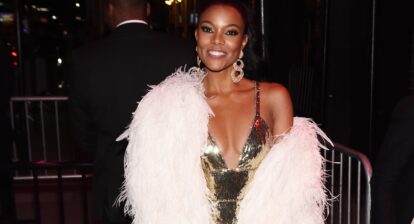
When it comes to traditional heterosexual romantic relationships in the Black community, it’s never truly been a walk in the park. Historically, a multitude of societal elements have plagued our community in this department. Some of these various external phenomena include chattel slavery, Jim Crow segregation, the rise of same-sex relationships, mass incarceration, the crack epidemic in the 90s and much more. However, regarding 2025, the goalpost is more nebulous and less clearly defined than ever before.
Through all the myriad hardships Black America has overcome, many generations of Black existence have fiercely fought, tooth and nail to foster domestic normalcy, get married, establish a healthy family dynamic, and embrace their savory slice of the good ole’ American pie. Some of the more noteworthy generations to embrace this tradition include “The Builders” (born before 1946), “Baby Boomers” (1946-1964), “Generation X” (1965-1979), and even some “Millennials” (1980-1996) with sprinkles of “Gen-Z” (1997-2009) here and there.
In the past, both Black men and women recognized the undeniable strength of “union” and were willing to do whatever it took to keep the family unit together. A lot of that structure depended on the man assuming the role of the brave and diligent “protector/provider” and the woman being the loving and “submissive” partner. In today’s era, it feels like this legacy objective has been distorted to the point of borderline oblivion, and that this goalpost has lost all its former luster and veneration. Some have even dared to suggest that the roles have totally reversed.
As the conversation around traditional gender roles resurfaces across social media, group chats and beyond, Black men are at the core of the debate on whether they seek “traditional” wives (“trad wives”) or if modern partnerships require new definitions. Now, there’s no official verdict on this matter, however, we do know that things aren’t as black and white as they once were. Times have changed, and there’s been a widespread attack on traditionalism when it comes to relationships and marriage in the Black community.
Some notable Black male celebrities have illustrated new, tangible forms of what more “progressive” relationships may entail in 2025: Kofi Siriboe illuminating his penchant for ethical non-monogamy, Ne-Yo showcasing his Rolodex of girlfriends (or wives as he likes to call them), Will Smith and more.
In the court of public opinion, there seems to be a glaring chasm between the progressive relationship style that some men want versus the more traditional relationships that some women want.
While many have been able to get away scot-free from the claws of scrutiny, Black men are now being called out for their ubiquitous lack of interest when it comes to romantic commitment. In the spirit of tradition, many Black women ideally would love to be led by a Black man.
Moreover, this newfound reality is bleak when it comes to the legitimate prospect of finding a Black male husband but, more importantly, attaining the ultimate traditional dream of a family.
While it may seem like Black men are the ostensible “villains” of this phenomenon, the core rationale behind why many Black men have been commitment-averse is way more nuanced than a singular paradigm.
With the widespread endearment of the term and practice of “situationships,” the still ongoing incarceration of Black men, the rise of polygamous relationships and same sex relationships, Black men yearning for women of different races/ethnicities and the advent of “dead-beat” mothers, it seems like the state of dating and relationships in the Black community are in a state of total disarray.
@stayzontopp #duet with @amanitalks #onethingaboutit #softshow #fyp #fypシ #tradwife #marriage #blackmarrige ♬ original sound – amanitalks
@counselcultureshow Why do successful Black men marry white women? The next #CounselCulture installment with #drumarjohnson drops TOMORROW! Tap in on all Podcast platforms and YouTube! Follow, Like, Subscribe here: YouTube.com/@counselcultureshow #therapytiktok #therapy #podcast #mentalhealth #mentalhealthawareness #explore #fyp #marriage #interracialcouple #blackmen #health #nickcannon #streaming @Nick Cannon ♬ original sound – Counsel Culture Show
@mr.hughes8 #viral #foryoupage #blackwomenoftiktok #motivational #selflove #believeinyourself #relationship #blacklover #tonightconversation ♬ original sound – Mr.Hughes
Black women, on the other hand, have been focused on optimizing their lives in America as they’ve become the “most educated” demographic in our country, according to a report from the National Center for Education Statistics. And upon reflection of their aspirations when it comes to matters of the heart, they have been vying for healthy relationships and to live in their “soft girl” eras, unperturbed by the threat of turmoil and foolishness, with Black men for the most part.
By virtue of their growth and elevation, there have been innate externalities, both good and bad, that women have had to face. Some of the less enjoyable side effects include the upsurge of misogyny/incel culture and the “Tall Girl” syndrome. Black women are hypergamous beings who desire to date on par or above their level, but it seems like the vast cohort of Black men hasn’t been able to skyrocket as swiftly.
In fact, Black men are being outperformed by Black women. As reported by prominent journalist Touré, there’s a pattern of young Black men opting out of attending college altogether. The repercussions of this trend have yet to yield a particular outcome, but this can’t be great.
Additionally, there is a lot of viral discourse about relationship dynamics that never existed in the past. In particular, the ever-present, hyperbolic dialogues around “who pays for the first date,” the prospect of $200 dates, and more. Also, the rise of digital shows like Pop The Balloon has reduced the traditional significance of relationships to mere laughter. All these conversations trivialize what has always been held in high regard.
Some psychological/economic barriers include women not having the desire to date men who make less than them and men having an aversion to dating women who are more successful than them. This juncture leaves us at the intersection of a perplexing catch-22 where no one wins.
For a healthier dating/relational landscape to manifest, there needs to be some modifications on both ends of the spectrum and fewer pointing fingers. In a world dedicated to achieving perfection, compromise, acceptance and gratitude seem to be distasteful practices. But perhaps, this could be the start to a viable antidote for Black folks who are seeking worthwhile relationships that could potentially culminate in marriage.
At the end of the day, Black relationships aren’t a monolithic experience, and contrary to the rhetoric spewing on social media and elsewhere, men and women continue to possess an active craving for love and companionship. When it comes to the ways of the modern world, Black women shouldn’t be punished for doing their absolute best and showing the world what excellence looks like in the process. On the flip side, Black men shouldn’t be tyrannized for engaging in different types of relationships if they so choose.
Beating each other down and having social media wars isn’t a catalyst for anything other than more confusion. Ultimately, it comes down to compromise, meeting in the middle, and finding a healthy dynamic for both parties involved. Of course, it’s more complex than that, but this is most certainly taking a step in the right direction. Self-awareness is forever paramount.


